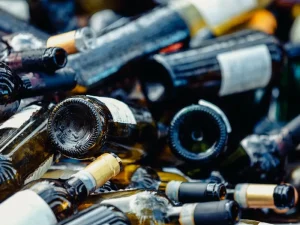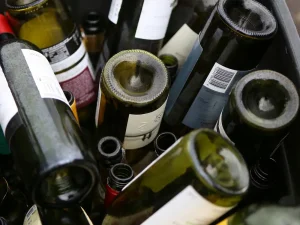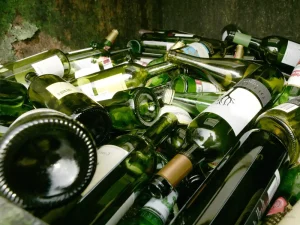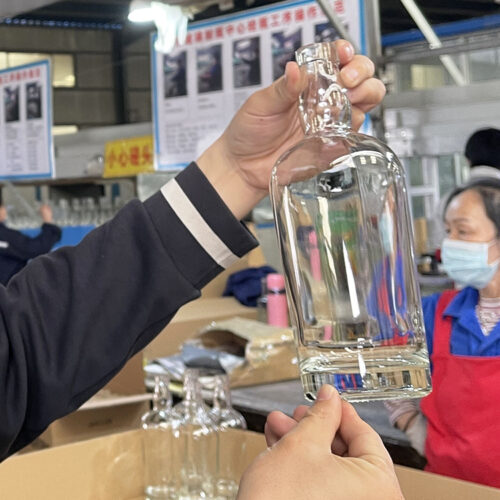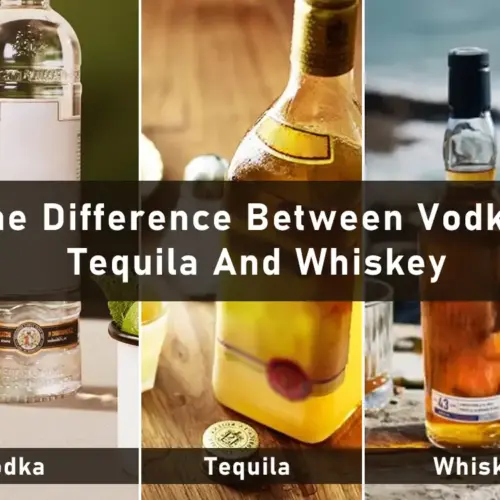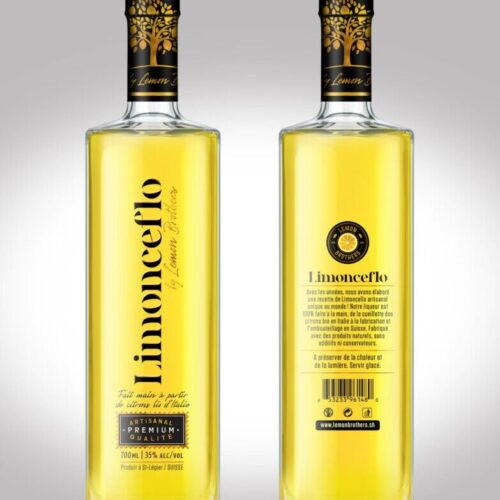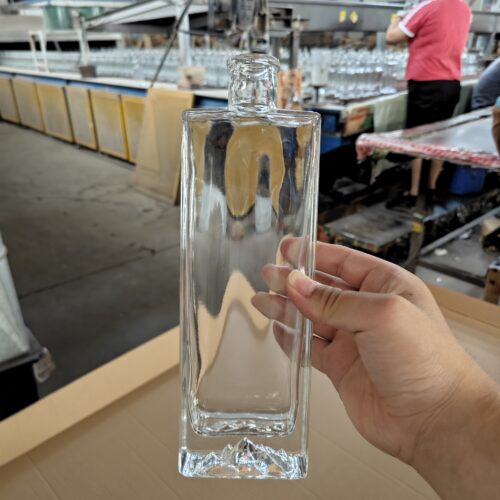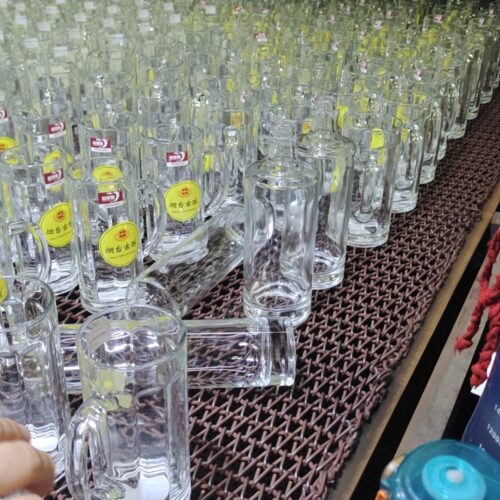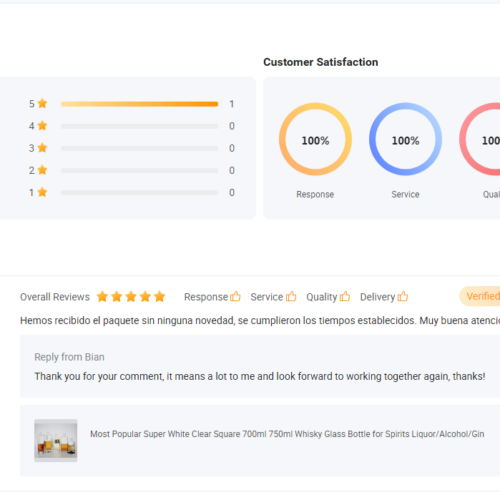While holding an empty wine bottle, you might wonder: Are wine bottles recyclable? Well, the answer is yes, but with some conditions. Wine bottles are undoubtedly made of glass, which is 100% recyclable. It can be easily melted, reshaped, and reused. However, assuming that all wine bottles are recyclable is a misconception.
Several aspects affect recycling the wine bottles, such as corks and labels. That’s why you may have noticed that some recycling centers accept wine bottles while some do not. So, knowing the truth is crucial before you throw the next wine bottle. In this detailed article, I will clear up the confusion once and for all. Let’s get started!
Are Wine Bottles Recyclable?
Yes! Wine bottles are recyclable but with some limitations. These bottles are made of glass, which can be recycled easily. However, thickness, color, corks, and regional recycling policies may hinder smooth recycling. In simple words, wine bottles are recyclable but not everywhere and not as easily as regular glass.
As I said above, the color of wine bottles can make recycling challenging. HOW? As you know, wine bottles come in two basic colors: brown and green. These colors can not be melted with regular clear glass and need a separate recycling process. Another challenge is the presence of corks and screw caps and labels.
As they are made of different materials, such as plastic, they cannot be recycled with glass. These closures need separate recycling, which costs more and becomes complicated. So, many recycling plants do not accept wine bottles. As a result, these bottles are thrown away, which adds to pollution.
Lastly, recycling policies vary from region to region, affecting wine bottle recycling. If your local recycling plant does not accept thick or colored glass, your wine bottle will be discarded. Moreover, recycling policies also vary with the collection process. In some areas, they offer separate bins for corks and glass.
This makes the recycling process more effortless. However, in some regions, there are single bins for collecting plastic and glass, which makes recycling more difficult. As a result, those recycling plants stop accepting wine bottles. Despite several challenges, you can save your wine bottles from wasting them. For example, you can do DIY projects with them.
How Are Wine Bottles Recycled?
Recycling wine bottles is challenging but not impossible. Many recycling plants use high-technology strategies. Let’s explore the typical steps involved in recycling wine bottles.
1- Collection and Transportation
The first step in recycling wine bottles is collecting them. As I said above, all recycling plants offer different policies for wine bottle collection. For example, in some regions, you will find separate bins for glass and plastic material. However, in some areas, you will see a single bin for plastic parts and glass. Once these bottles are collected, they are sent to material recovery facilities (MRFs).
2- Sorting and Removal of Non-Recyclable Materials
After collection, the second step is sorting the wine bottles. Recycling plants usually sort the wine bottles based on colors such as green and brown. Some recycling facilities use advanced sensors that automatically detect and separate different colors. After sorting, the separation of non-recyclable material takes place. Wine bottles also involve plastic parts such as caps, metal foils, and corks. So, they cannot be recycled with glass and must be removed.
3- Cleaning and Label Removal
Cleaning is a critical step in the recycling of wine bottles. Minor impurities can affect the quality of glass and interfere with the recycling process. Therefore, wine bottles are first thoroughly cleaned. For example, you can rinse them with water and detergent. However, some recycling plants use chemical treatment. This method not only cleans the bottles but also removes the labels, which saves time and effort.
4- Crushing and Pulverization into Cullet
After cleaning the bottles, they are crushed into small pieces using special crushers. These small pieces are known as cullets. The reason for crushing is the ease of recycling. HOW? These small pieces are easy to handle and do not require high temperatures for melting. As a result, less energy is consumed in the overall recycling process. Cullets also undergo a cleaning process, which further removes leftover impurities.
5- Melting and Reshaping
This is the last step in recycling wine bottles. After crushing the bottles, cullets are melted in a furnace at 1,400°C temperature. The molten glass is then quickly transferred into different-shaped molds. These molds convert the molten material into definite-shaped bottles. However, recycled bottles don’t need to be converted into wine bottles again. Manufacturers also create different decorative products using molten glass material.
Why Should We Recycle Wine Bottles?
As I said above, wine bottles are made of glass, so they can be recycled. However, due to a lack of awareness, these bottles are thrown in open spaces, which adds to pollution and waste. In the section below, I will discuss briefly why we should recycle wine bottles.
- First, recycling is crucial to keeping our environment safe and healthy. If you throw out wine bottles, they will end up in landfills. As a result, the amount of waste increases, taking up more space and causing more pollution. But when you recycle a wine bottle, you directly contribute to reducing the waste.
- Wine bottles use valuable raw materials such as soda ash and limestone. These resources are nonrenewable, and their continuous use causes depletion. However, by recycling wine bottles, you can conserve natural resources.
- Recycling the wine bottles saves energy and reduces carbon emissions. Recycling requires less energy as compared to remanufacturing. As a result, you can save 30% of energy, directly reducing carbon emissions caused by manufacturing.
- Recycling wine bottles reduces environmental damage. When a broken wine bottle is thrown into open areas, it can injure humans and animals. Moreover, discarded wine bottles flow into rivers and oceans, harming marine life.
- Lastly, recycling wine bottles supports the economy and creates jobs. Different recycling plants hire people for collection and processing, decreasing unemployment. Additionally, recycled wine bottles cost the consumer and manufacturers less, saving money.
What to Do If Your Area Doesn’t Recycle Wine Bottles?
If you can’t find a recycling facility in your area, don’t worry! I have several solutions for saving wine bottles that end up in landfills. Let’s jump right in!
1- Find a Nearby Glass Recycling Center
Search for nearby areas if your local area does not recycle wine bottles. You can contact recycling plants online and ask them for their transportation services. You can also contact your local municipal management if you have wine bottles in bulk. Moreover, you should also visit nearby drop-off locations.
2- Reuse Wine Bottles for DIY Projects
This is one convenient method if you don’t find a recycling option. You can turn a used wine bottle into several functional items. For example, clean the bottle and use it as a flower vase. You can also use empty wine bottles to hold candles. Moreover, used wine bottles can also be used as bird feeders in your garden.
3- Donate to Local Artists or Upcycling Businesses
Artists know how to convert useless things into valuable pieces. So, donating the used wine bottles to your local artist is the best option. They will convert it into beautiful home decor and functional items. Moreover, local bars and restaurants also accept wine bottles to reuse for different purposes.
4- Check with Local Wineries or Breweries
Small-scale wine producers reuse and refill wine bottles. So, if your area does not recycle wine bottles, search for local wineries. Ask them whether they accept old wine bottles. If yes, you should donate them; they may also offer you some money for this donation. This benefits them by reducing the cost of new bottles and saving waste.
5- Use Them for Bulk Shopping & Storage
Wasting wine bottles is never a good idea. If you don’t find any recycling option, reusing them for storage is one of the best ways. HOW? As you know, wine bottles are made of durable glass so that they last longer. You can clean them and use them to store oils, vinegar, and other cooking essentials.
Frequently Asked Questions
Are wine bottles biodegradable waste?
No, wine bottles are not biodegradable waste. This means they do not naturally decompose but remain in the same condition for thousands of years. This is why wine bottles must be recycled to prevent environmental damage.
Are broken wine bottles recyclable?
Usually, recycling plants do not accept broken wine bottles. Their pieces can cause injury during collection and handling. That’s why you should not throw broken wine bottles into bins without permission.
Do I need to remove labels and corks before recycling?
It depends on the recycling guidelines and policies. Some recycling facilities offer multiple bins for different materials. In this case, you should remove the labels and corks and place them in a different bin. However, some facilities accept wine bottles as they are, so you don’t need to remove labels and corks.
Conclusion
Wine bottles are made of glass, so YES, they are recyclable. However, recycling these bottles is not as effortless as recycling regular bottles. You can face several challenges during their recycling. For example, they come in different colors, hindering recycling. Moreover, the presence of labels and corks also restricts their recycling.
Therefore, several regions do not have facilities for recycling wine bottles. In this situation, you can reuse these bottles in different ways. For instance, you can donate them to local artists for upcycling. Moreover, you can also prepare several DIY projects with empty wine bottles. Reusing wine bottles saves energy and contributes to sustaining the environment.

